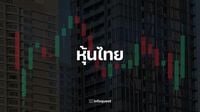Hong Kong's economy is showing signs of robust growth in the first quarter of 2025, bolstered by a resurgence in tourism and exports. Financial Secretary Mr. Paul Chan Mo-po expressed optimism about the economic outlook, stating that the government's continued focus on controlling spending is vital for maintaining the city's competitive edge.
Chan revealed that the gross domestic product (GDP) figures for the first quarter reflect a healthy growth trajectory, primarily driven by the recovery in the tourism sector and a rise in exports during the months of January to March. "Given the positive factors mentioned, we expect the preliminary GDP estimates for the first quarter, to be announced this week, to be strong," he noted.
Despite the encouraging figures, Chan cautioned that Hong Kong's economy still faces pressures from ongoing uncertainties in international trade, particularly due to the protracted trade war. He pointed out that the International Monetary Fund (IMF) recently downgraded its global economic growth forecast for this year by 0.5 percentage points to 2.8%, significantly lower than the 3.7% average seen before the COVID-19 pandemic.
In the first quarter of 2025, Hong Kong welcomed 12.2 million visitors, marking a 9% increase from the previous year, largely attributed to major events and international conferences. Among these visitors, 2.98 million came from mainland China, an increase of 18%, while tourists from other regions rose by 6%. Looking ahead, Chan anticipates that around 840,000 tourists from mainland China will visit during the upcoming Golden Week holiday from May 1 to May 5.
On the export front, Chan noted that despite the intensifying trade war, Hong Kong has experienced positive growth in several markets, including mainland China and ASEAN countries. Exports to the United States also saw a slight uptick. However, he warned that the city cannot escape the consequences of global market volatility and highlighted the need for vigilance in monitoring potential risks.
Dr. Lee Shu-kam, Head of the Department of Economics and Finance at Shue Yan University, concurred with Chan's assessment, believing that while Hong Kong's economy could expand in the first quarter, caution is warranted. "The impact of the trade war initiated by the United States will begin to manifest more clearly in the coming quarter," he said. Lee emphasized that if Hong Kong fails to diversify its markets, its exports may slow down, leading to increased economic pressures.
Lee also pointed out that consumer confidence in Hong Kong remains fragile. Although the tourism sector is rebounding, the retail and food service industries have not yet fully capitalized on this recovery. He noted that many people are beginning to avoid travel to the United States, suggesting that attracting these tourists to Hong Kong could provide a much-needed boost to the economy.
Former Secretary for Financial Services and the Treasury, Mr. Ceajer Chan Ka-keung, emphasized the importance of Hong Kong's role as a "superconnector" between China and the global market amid the ongoing trade tensions. He recommended that Hong Kong enhance its economic and trade cooperation with European countries, particularly smaller economies with high potential, and urged the government to promote the development of artificial intelligence (AI) technology, leveraging Hong Kong's status as a global financial hub.
The Hong Kong Trade Development Council also noted that the city is maintaining its economic stability as a global financial center, with effective government spending controls and financial management helping to mitigate the impact of global economic uncertainties. The council is pursuing strategies to find new markets to diversify risks from the trade war, expanding financial and trade cooperation with Europe, ASEAN, and other emerging markets.
Thailand is identified as a potential market within ASEAN, given its geographical advantages that position it as a logistics center for the region. With a diverse economy encompassing manufacturing, agriculture, and digital services, Thailand's business connections with Hong Kong could enhance access to the Chinese market and promote Thailand's economic development.
Meanwhile, analysts suggest that the Thai stock market is poised for an upward swing, buoyed by external factors as the trade war situation begins to ease. The U.S. Treasury Secretary has expressed optimism about trade negotiations with several countries, which has helped improve investor sentiment. However, close monitoring of discussions with China remains essential.
The Thai Joint Standing Committee on Commerce, Industry, and Banking (JSCCIB) is anticipating a potential interest rate cut to 1.75%, which could further support the market. The committee has set a target range for the stock index between 1,160 and 1,180 points, with a more ambitious target of 1,200 points.
Mr. Visit Limlurcha, Vice Chairman of the Thai National Shippers' Council, noted that the Thai stock market is responding positively to foreign investments, particularly from countries like India and Japan. The JSCCIB has indicated that 80% of traders expect a 0.25% interest rate reduction, which is anticipated to provide additional momentum to the market.
On April 29, 2025, the Dow Jones Industrial Average closed at 40,527.62 points, up 300.03 points, or 0.75%. The S&P 500 and Nasdaq also saw gains, closing at 5,560.83 points and 17,461.32 points, respectively. In Asia, the Nikkei index opened at 35,946.88 points, while the Hang Seng index in Hong Kong rose slightly to 22,038.73 points.
In the latest developments, the Thai stock market closed at 1,171.12 points, reflecting an increase of 11.59 points or 1%. Foreign investors were net buyers, purchasing 591.53 million baht worth of shares.
As the global economic landscape continues to evolve, both Hong Kong and Thailand are navigating their unique challenges and opportunities, with a focus on trade relations and economic recovery strategies.

